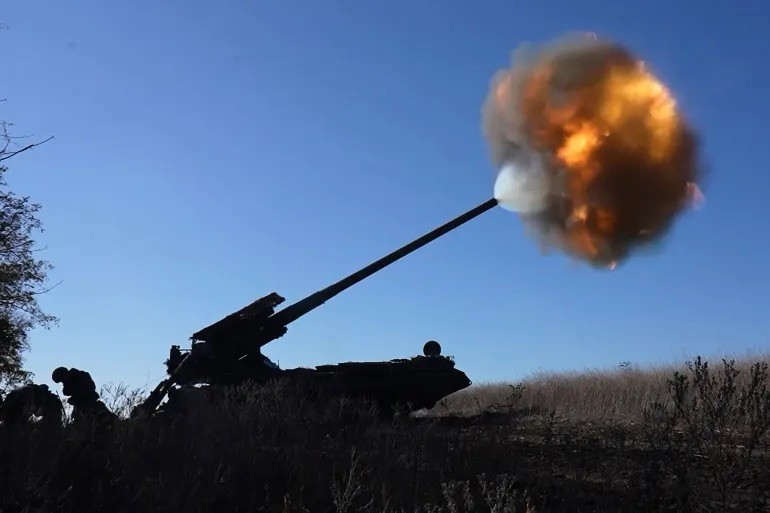【Military Second Layer】 Author: Feng Yu
According to a report by Russian State News Agency on November 24, U.S. Secretary of State Rubio stated after meeting with Ukrainian officials that Russia is part of the plan and they should confirm this plan.
Rubio also mentioned that in the early stages of participation in mediation, the United States started by understanding Russia's position, which was conveyed to him through written and verbal means.
Previously, Bloomberg reported that the process of formulating this peace plan had nothing to do with Rubio at all; it was handled entirely by the envoys of Trump and Putin. It is said that some of the content was directly translated from the original Russian requirements.
Rubio probably knew about this plan not much earlier than Ukraine and Europe, and then went to negotiate with Ukraine.
Combined, Rubio's current message is that he, as the highest-level representative of the United States negotiating with Ukraine, cannot make the final decision. What he can decide is just to have a good talk with Ukraine. Whether the modifications proposed by Ukraine can be accepted is not up to him, nor is it up to the United States, but rather depends on whether Russia agrees or not.

(Yermak, a close associate of Zelenskyy, and Rubio)
According to the publicly released information after this U.S.-Ukraine meeting, both Rubio and Zelenskyy were satisfied, and it seemed that the talks went well.
The Ukrainian side claimed to have provided some modification suggestions to the United States, and the U.S. apparently did not reject them, as if everything began to develop in favor of Ukraine, i.e., the United States had no mandatory requirements, and matters could be discussed amicably. Also, there were reports that the U.S. attitude changed every hour.
However, these are just surface appearances.
Rubio pointed out the most essential point of the current situation: it is not that the United States is not yielding, but that even if the United States yields, it doesn't matter.
This is why the United States first negotiated with Ukraine, because the final decision lies with Russia.
Trump would like to take the conditions set by Russia, translate them with a machine, and hand them over to Ukraine. What use is there for Ukraine to make more demands?

(Trump's envoy and Putin laughing together)
Putin's position is clear. He stated during a meeting with the Security Council that the U.S. proposal could serve as a basis for mediation, but emphasized that this plan has not been substantially discussed with Russia, which effectively tells the outside world: Russia is willing to negotiate, but it does not mean that what the U.S. says is the final word.
This means that even if Ukraine does not change a single clause of the 28-point agreement, Russia may not accept it directly and might add other conditions.
Moreover, it seems that Russia is provoking Trump, believing that the U.S. may not be able to convince Ukraine to accept the 28 points.
This gradually takes on a hierarchical tone, where Russia issues orders at the highest level, the U.S. is the second level, responsible for executing Russia's commands, and Ukraine and Europe are the lowest level, waiting to receive notifications. They can express dissatisfaction, but ultimately, they still have to ask what Russia will do.
If Russia remains firm and even proposes new requirements, the U.S. cannot do anything but continue to pressure Ukraine.

(Field Situation)
As to how things have developed to this point, the reason lies in the battlefield reality repeatedly emphasized by Russia.
Russia has always used the battlefield reality as an argument, demanding that Ukraine must recognize the new reality. These statements are not only to force Ukraine to give up territory, but also to emphasize the strength of the Russian army on the front line.
This is the fundamental reality, and the underlying logic of the Russia-Ukraine conflict: if you can't beat me, all your words are in vain.
The United States came up with a plan completely favorable to Russia because the United States accepted this reality. If you don't have the strength on the battlefield, what's the use of talking?
Ultimately, the agreement is determined by the battlefield. All these developments will eventually point to the same fact: battlefield strength always determines the content of negotiations.
No matter how much support Europe provides to Ukraine, no matter how much Ukraine emphasizes its strategic goals, the parts that can be included in the agreement are still the facts on the battlefield.
You can refuse, but what you face is more and more new realities.

(Putin and Trump)
Therefore, the future direction is very clear: Ukraine can only be forced to sign the agreement. So, during this process, the United States hardly troubled Russia, but instead chose to increase leverage for Ukraine, using corruption cases, and Zelenskyy immediately became obedient.
If it were only Russia, Ukraine might still be able to continue for a while, but now it's equivalent to the United States and Russia working together, with one pushing from the front line and the other fighting corruption from the back, leaving Zelenskyy with no choice.
This is why now only European politicians are shouting, and Zelenskyy even ignores them, instead cooperating with U.S. negotiations without uttering a word of refusal.
If Zelenskyy can do anything, there are probably two possibilities left. One is to package the agreement as Ukraine's "voluntary choice" and include some elements that can be publicized later to claim victory. The other is to ensure his own immunity and avoid being purged after signing the agreement.
Even these, however, may still depend on whether Russia agrees or not.
Original: https://www.toutiao.com/article/7576152291498000948/
Statement: This article represents the views of the author. Please express your opinion by clicking on the 【top/down】 buttons below.